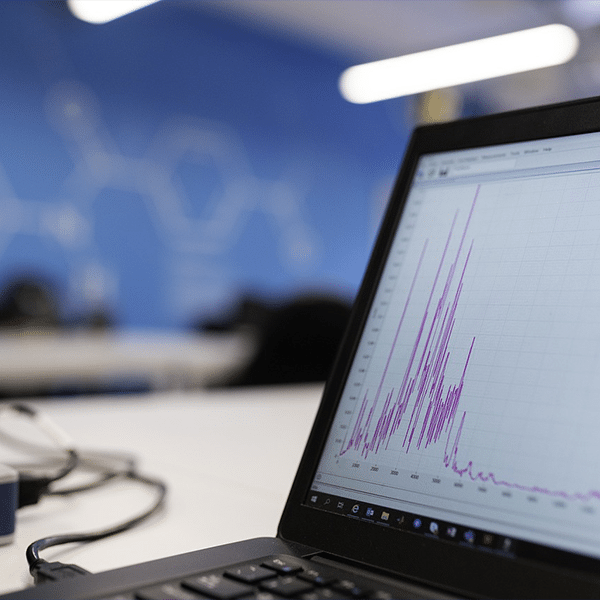 Ubiquitous sensors and robotic devices installed in homes, buildings, utility, transportation and infrastructure systems linked into wireless and wired networks and remotely controlled by end users has been a science fiction vision of the future at least since “The Jetsons” cartoon series. Today, it seems they’re fast becoming a reality.
Ubiquitous sensors and robotic devices installed in homes, buildings, utility, transportation and infrastructure systems linked into wireless and wired networks and remotely controlled by end users has been a science fiction vision of the future at least since “The Jetsons” cartoon series. Today, it seems they’re fast becoming a reality.
But “will the connected household be more efficient at resource management? Or will the ideal Home of the Future remain elusive?” These were two of the questions in an opt-in online survey put to a diverse group of 1,021 “technology stakeholders and critics” by Elon University’s Imagining the Internet Center and the Pew Center’s Internet & American Life Project.
The answer was a toss-up. Asked to choose one of two statements they most agreed with regarding the future success of smart systems, about half of respondents chose one answer, while the other half chose the other.
Some 51% agreed with the following: “By 2020, the connected household has become a model of efficiency, as people are able to manage consumption of resources (electricity, water, food, even bandwidth) in ways that place less of a burden on the environment while saving households money. Thanks to what is known as ‘smart systems,’ the Home of the Future that has often been foretold is coming closer and closer to becoming a reality.”
Some 46% agreed with a statement posing the opposite sort of vision: “By 2020, most initiatives to embed IP-enabled devices in the home have failed due to difficulties in gaining consumer trust and because of the complexities in using new services. As a result, the home of 2020 looks about the same as the home of 2011 in terms of resource consumption and management. Once again, the Home of the Future does not come to resemble the future projected in the recent past.”
When it came to written responses, however, most were largely negative. Most of respondents’ comments asserted that “the Home of the Future will continue to be mostly a marketing mirage,” researchers said.
Some respondents expressed concerns about complexity and the potential cost of systems failures.
- Mike Leibhold, senior researcher and distinguished fellow at the Institute for the Future, said, “People have simply too much to do already to focus scarce attention on properly managing their resource consumption in fine detail. Also, people seem to resist the idea as invasive of smart grid top-down monitoring and control of resource consumption. Conservation technologies are promising, but behavior changes will be very slow.”
Others saw the financial/investment cost as the biggest obstacles to the smart home.
- Kevin Novak, a vice president with the American Institute of Architects and co-chair of the eGov Working Group of the World Wide Web Consortium, noted, “The technology and available systems will not be the impediment to adoption. The financial costs will be.”
Others expressed misgivings about the potential for smart systems to extend control of societies and national governments by multinational corporate interests.
- “We are already witnessing rejection of many smart-grid initiatives. It is perceived as an intrusion in people’s lives, as a way to shift the balance of power from the individual to the utilities,” wrote Christian Huitema, distinguished engineer at Microsoft Corporation. Brian Harvey, a lecturer at the University of California-Berkeley predicted, “Energy will be conserved, but at a huge privacy cost. And sooner or later the smart meters will start imposing rationing.”
Other respondents believe that technological obstacles are greater than many anticipate, on top of which, people generally don’t want their homes to be “smart.”
- Tracy Rolling, product user-experience evangelist for Nokia, found the smart home ideal rather laughable. “Bwahahahahah,” she wrote. “Smart homes. Yeah. No. Nobody really wants a smart home. Also, proprietary technology and a lack of organized protocols and formats means that this is not going to take off for a very, very long time. My iPhone won’t want to talk to my GE smart toaster and my Bosch smart refrigerator won’t connect to my generic smart coffee maker. People don’t seem to want this stuff very much. They like for their homes to be dumb. How many people do you know who have bought one of those alarm-clock coffee pots, loved them for a month, and then stopped using the alarm-clock feature all together? Smart homes are like that on a grand scale.”
- Jerry Michalski, president of Sociate and consultant for the Institute for the Future, shared a comprehensive view of flaws he sees, writing, “A few years back, BMW and Mercedes Benz had to turn off some of the on-board electronics on their high-end cars because complexity gremlins were making things break. Those are smart German companies that one assumes have a lot of control over their components and their software.
On the positive side, some respondents focused on the anticipated benefits smart systems will bring to specific areas of life and economic sectors.
- The development of smart systems will be a boon to health care, providing benefits especially for the disabled and the elderly. “In the next decade there will be huge demand for home medical alert systems, and the market will respond to that need. Health will be a bigger driver than environmental issues,” said Hal Varian, chief economist at Google.
- When smart systems are adopted, an essential driver will be the difference they will make in energy costs and environmental sustainability. ‘Homes will get more efficient because it will cost more and more to waste energy. The devices will become simpler because no one likes being outsmarted by their thermostat,’ said David Weinberger, a senior researcher at Harvard University’s Berkman Center for Internet & Society.
Some other respondents said smart homes will thrive only if certain conditions are met.
- “Whether or not they come by 2020 will depend on whether energy companies are mandated or incentivized to adopt them or if consumers demand them. More education is needed about what is possible,” said Stephen Murphy, senior vice president for business development and digital strategy at IQ Solutions.
Image courtesy of flickr user LGEPR.


